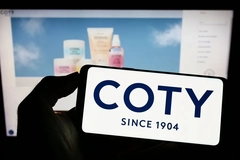Colgate agrees to alter toothpaste packaging after Texas AG probe
Key takeaways
- Colgate-Palmolive will change its toothpaste packaging and marketing for children to address concerns over misleading fluoride advertising.
- The company will depict “pea-sized” amounts of toothpaste on its packaging.
- The move reflects growing scrutiny in the US over fluoride use in personal care products and drinking water.

Colgate-Palmolive has agreed to change the packaging and marketing for its toothpaste products aimed at children after US Texas Attorney General Ken Paxton called its fluoride advertising “misleading, deceptive, and dangerous.”
Starting in November, the oral care company will portray “safe, age-appropriate amounts” of toothpaste on its packaging and advertisements for children under six. The changes apply to the Colgate, Tom’s of Maine, and Hello brands. The adjustments will be available online before the physical packaging.
In May, Paxton launched an investigation into toothpaste manufacturers “illegally marketing toothpaste products containing fluoride to kids.” He issued Civil Investigative Demands (CIDs) to Colgate-Palmolive and Procter & Gamble (P&G), alleging they used hazardous marketing for toothpaste products. P&G owns the Crest toothpaste brand.
Paxton alleged that the companies’ fluoride toothpaste packaging displayed more than the recommended amount.
The Centers for Disease Control and Prevention (CDC) says parents should put a rice-sized “smear” of toothpaste on the brush until the child turns three. Meanwhile, the American Dental Association recommends that parents use “no more than a pea-sized amount” of fluoride toothpaste for children ages three to six.
Children’s care change
Colgate-Palmolive will now depict the “pea-sized” amounts of toothpaste on its packaging and digital marketing for children under six.
“This historic agreement with Colgate is an incredible example of what is possible when American companies are willing to take concrete steps to protect the health of our children and families. We commend Colgate for being the first major toothpaste manufacturer to make meaningful change in this space and hope other companies follow their lead,” says Paxton.
 Colgate will redesign its packaging in response to the fluoride safety concerns. According to an Assurance of Voluntary Compliance filed, Colgate’s swap does not constitute an admission of rule violation.
Colgate will redesign its packaging in response to the fluoride safety concerns. According to an Assurance of Voluntary Compliance filed, Colgate’s swap does not constitute an admission of rule violation.
“Colgate expressly denies any such liability for, violation of, or noncompliance with any such law, rule, or regulation,” said the filing.
Paxton initiated his investigation into toothpaste companies amid increasing scientific data on the dangers of excessive fluoride exposure for children.
In August 2024, a meta-analysis from the Department of Health and Human Services’ National Toxicology Program indicated a “statistically significant” connection between fluoride exposure and decreased IQ scores in children.
Paxton and Colgate-Palmolive’s move follows recent fluoride bans in drinking water in Utah and Florida, which were the first states to do so. Health and Human Services Secretary Robert F. Kennedy Jr., who wants to reduce fluoride use nationwide, celebrated the decision.
Fluoride fears
Colgate-Palmolive’s decision to redesign its packaging represents mounting scrutiny of fluoride in personal care products and the US water supply.
The US water supply often contains fluoride to varying levels. In 1962, the US Public Health Service recommended that public water supplies contain fluoride to help prevent tooth decay. As of 2022, three out of four Americans’ drinking water contained fluoride.
However, public and political consensus around fluoride in the US has been shifting in recent years.
In 2024, a federal judge in California ruled that the Environmental Protection Agency must strengthen regulations of water supplies to regulate the “unreasonable risk” from fluoride. In May this year, the FDA began removing concentrated ingestible fluoride prescription drug products for children.
Government bodies, such as the CDC, support water fluoridation for its proven dental benefits. The CDC reviews scientific literature on fluoride on a rolling basis to assess its safety. It has not identified convincing evidence linking community water fluoridation with adverse health effects. Yet, Robert F. Kennedy Jr. has told the CDC to stop recommending fluoridating water.  Texas AG Ken Paxton is leading an investigation into “misleading” fluoride marketing.
Texas AG Ken Paxton is leading an investigation into “misleading” fluoride marketing.
The American Dental Association supports fluoride use in toothpaste and water for cavity prevention, but some recent research has sparked questions about its potential health impacts.
Those who are against the dosing of fluoride cite research linking negative effects on children’s developing brains.
The Attorney General’s Office hopes Crest will emulate Colgate’s actions in reassessing its packaging. The investigation into P&G is still ongoing.
“I will use every tool available to protect our kids from dangerous levels of fluoride exposure and deceptive advertising,” said Paxton at the start of his investigation.
“Toothpaste manufacturers must follow state law to ensure that they aren’t putting Texas families in peril through their false, misleading, and deceptive marketing, and these CIDs will help my office discover any potential wrongdoing. As this investigation continues, I will take aggressive action against any corporation that puts our children’s health at risk.”












